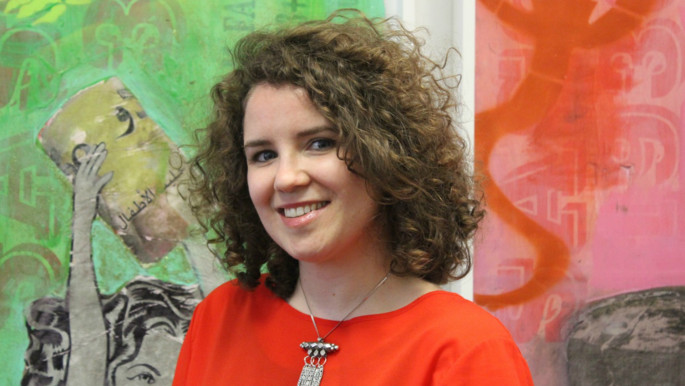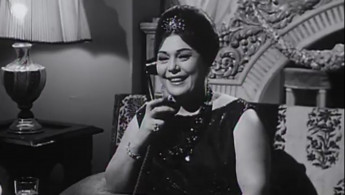London's only Arab film festival showcases classic literary worlds
Celebrating its fourth year, the six-day long festival delves into the deep relationship between Arabic literature and the big screen through a line-up of films dating back to the 1960s.
Nadia El-Sebai, the executive director of the Arab British Centre which leads the initiative, spoke to The New Arab about the festival this year.
"SAFAR is one of The Arab British Centre's most popular initiatives," El-Sebai said. "Film as a medium is not only entertaining, but insightful and thought provoking, and through film you can immerse yourself in the lives of others."
Both organisers and participants hope the festival gives a snapshot of the rich culture of the Arab world that is often obscured to outsiders by images of war.
"The Arab world has a rich film heritage that is not very accessible in the UK, so I think SAFAR is a really important platform for our audiences."
Through the theme this year, the curators hope to illustrate the literary journey through Arab cinema by focusing on the intrinsic links between modes of storytelling, literature and the world of Arab film.
"The programme offers a really diverse exploration of literary adaptations and the best of contemporary storytelling," El-Sebai said.
"We feel the theme offers a deeper look into Arab film heritage and we're excited about the conversations we're having about the films and the authors and books that inspired them."
 |
| Nadia El-Sebai is the executive director of the Arab British Centre that leads the initiative [Arab British Centre] |
The festival's opening kicked off with a screeing of El Tareeq (The Search) – an Egyptian film noir and an adaptation of Naguib Mahfouz's 1964 novel of the same name.
Other notable highlights include In The Land of Tararanni (1973) - a Tunisian film based on Ali Douagi's popular and influential short collection Sahart Meno al Layali (Sleepless Nights).
The festival will also feature The Opium and the Baton (1977), an Algerian film based on Mouloud Mammeri's 1965 novel of the same name.
To bring the audience into deeper conversation with the Arab world's literary and cinematic heritage, the festival includes Q&A sessions with directors, authors and curators.
The organisers also sought to provide as many subtitles as possible for non-Arabic speaking audiences.
"We've worked really hard to get a hold of and subtitle a number of the classic films," El-Sebai explained.
Since its launch in 2012, the festival has attracted a substantial audience brought in by the presence of some of the region's most noted cinematic names.
"Over the past four editions we have worked with the very best film curators in the region, who have introduced classic and contemporary films from the region with unique opportunity for commentary and exploration," El-Sebai said.
"This year's programme curated by Joe Fahim is no exception and we are excited that this is the largest festival we've run to date."
However, like any exploration of culture, it will be left to the audience to decide what from the great and good of Arab cinema stands above all else.
"Personally, I am also really looking forward to watching Wajib (2017) and meeting the director Annemarie Jacir, along with the world premiere of the restored version of The Land (1969) by Youssef Chahine," El-Sebai said.
The SAFAR festival runs this year from 13-18 September.


![Minnesota Tim Walz is working to court Muslim voters. [Getty]](/sites/default/files/styles/image_684x385/public/2169747529.jpeg?h=a5f2f23a&itok=b63Wif2V)






